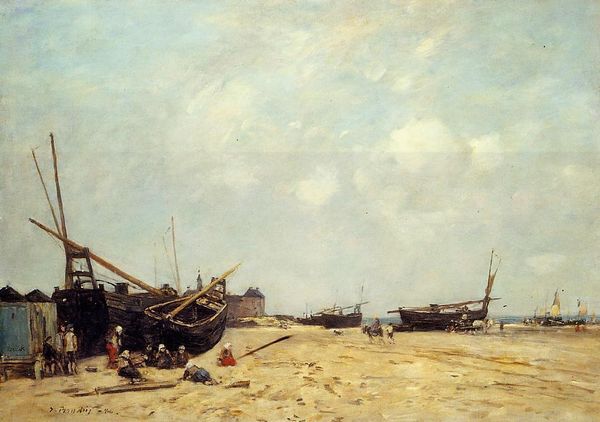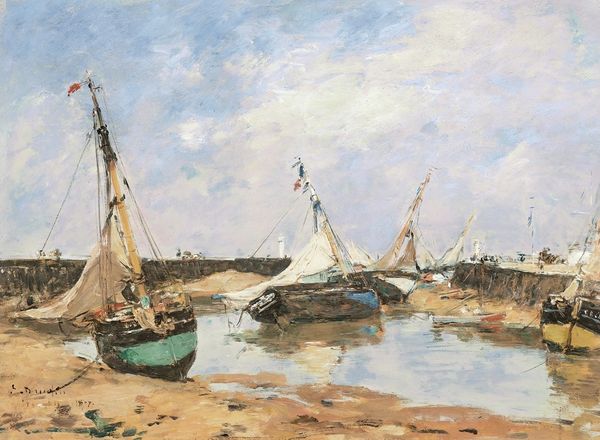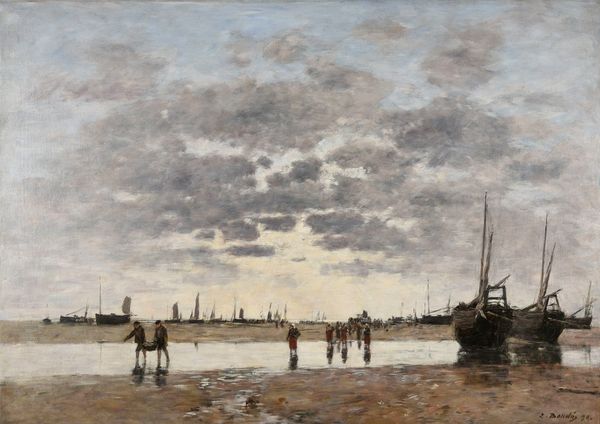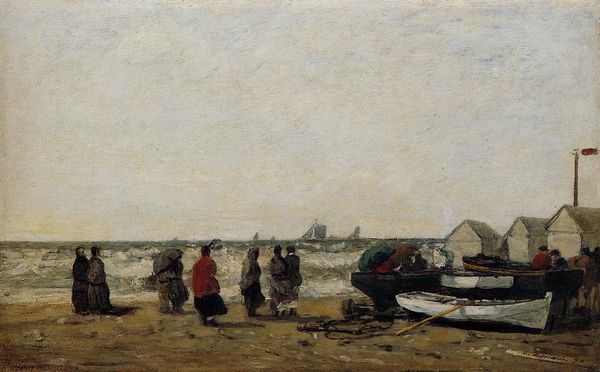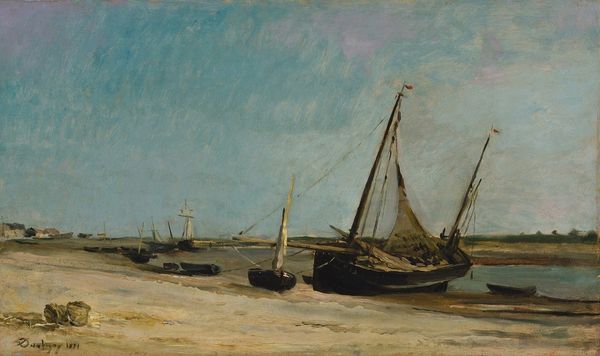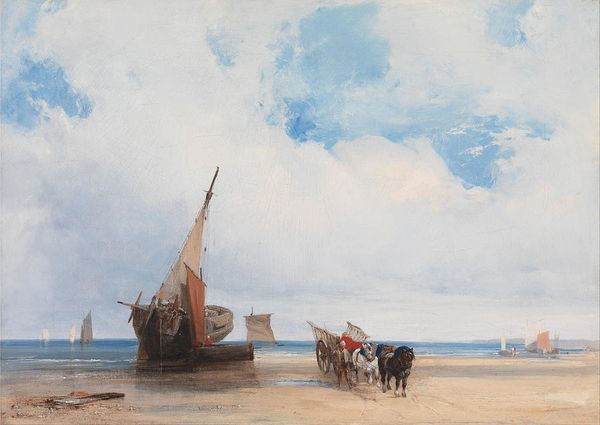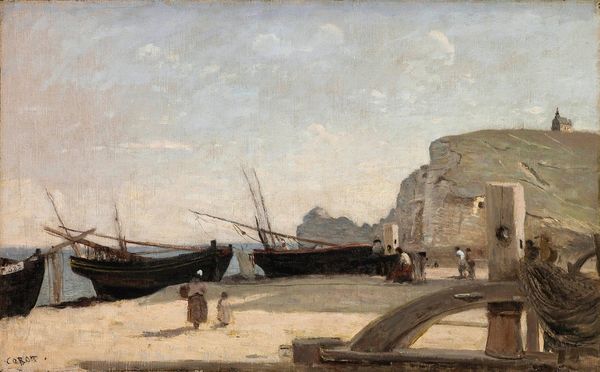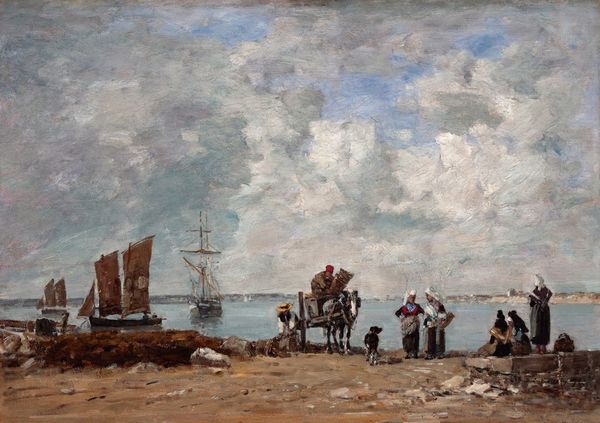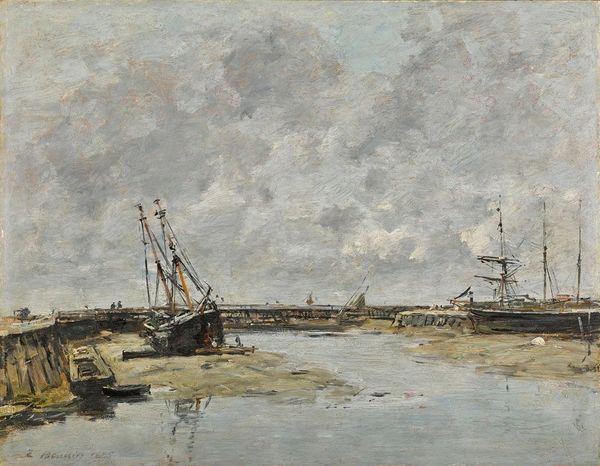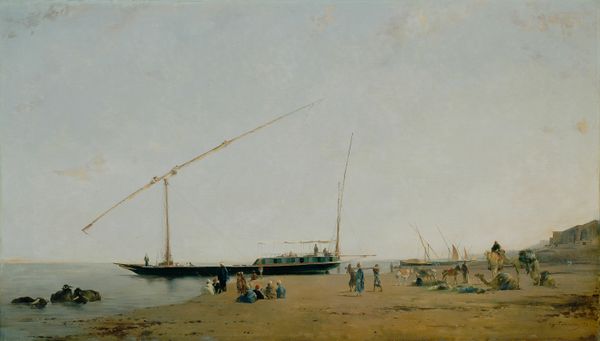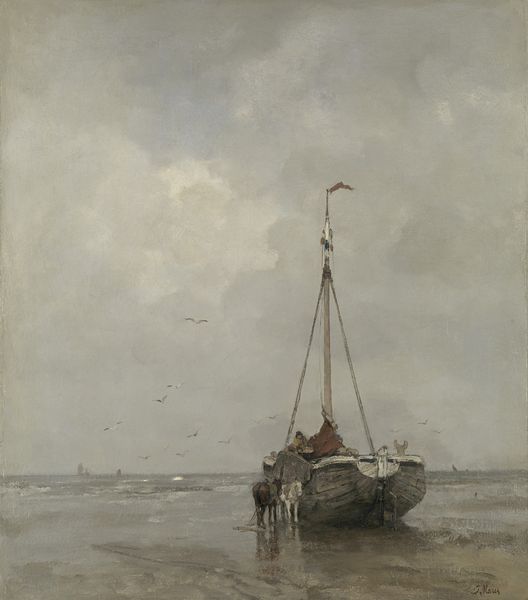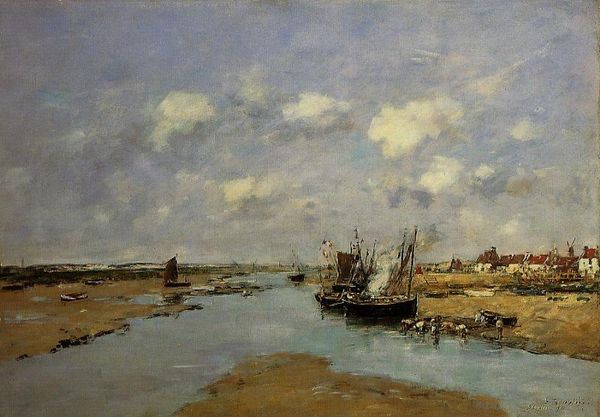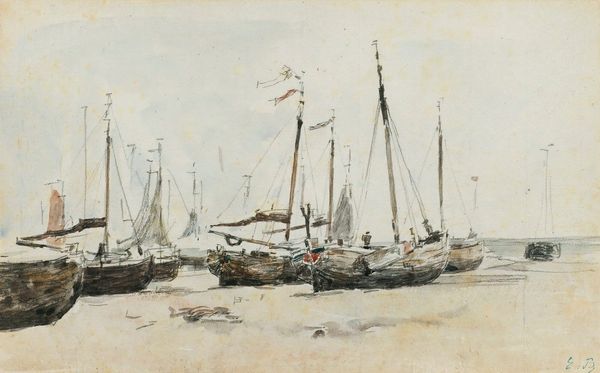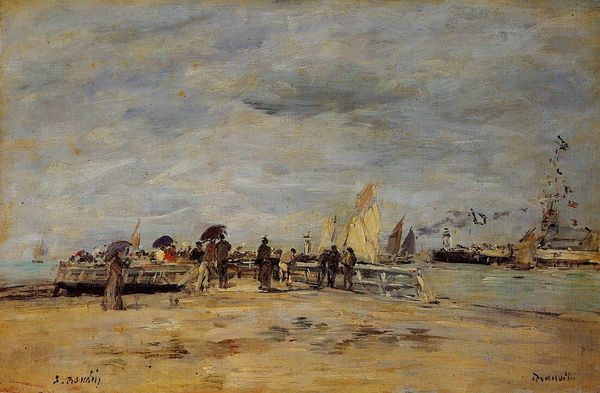
plein-air, oil-paint
#
still-life-photography
#
impressionism
#
plein-air
#
oil-paint
#
landscape
#
painted
#
oil painting
#
genre-painting
#
realism
Copyright: Public Domain: Artvee
Eugène Boudin made this painting of the beach at Berck, likely in the late 19th century, using oil paints on canvas. These were, of course, the standard materials of his day, the means by which an artist could present his particular vision to the world. The material qualities of the painting—its relatively small size and the visible brushstrokes—speak to Boudin’s own working methods. He famously painted *en plein air*, meaning directly in front of his subject. This directness gives the scene a casual, uncontrived feel, as though we’re just passing by the beach ourselves. Yet the painting also has something to say about social conditions. It’s important to remember that maritime scenes like this one weren’t just picturesque views. For many, the sea was a workplace, the source of their livelihood. Boudin captures this reality by including figures engaged in everyday tasks. They are rendered with the same attention as the boats, the beach, and the sky. By paying attention to materials, making, and social context, we can understand the full meaning of this unassuming but resonant artwork, challenging traditional distinctions between fine art and craft.
Comments
No comments
Be the first to comment and join the conversation on the ultimate creative platform.
